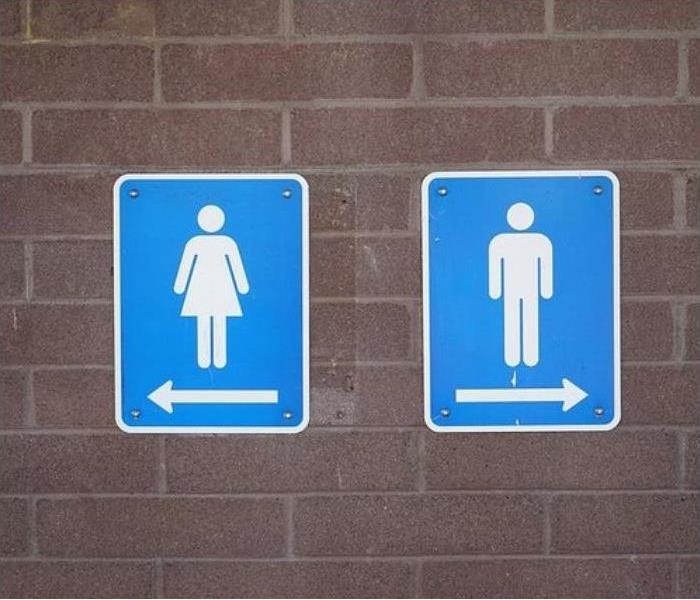How to Deal with A Sewage Backup Problem
11/16/2020 (Permalink)
For homeowners and business owners alike, a sewer backup is an awful situation to deal with. The foul odors and the potential for extensive property damage are just the beginning of the problem. Cleanup requires a lot of time and hard work and is absolutely about as unpleasant as it gets. If you experience a sewage backup issue, learn what to do to get it handled correctly and safely.
The first steps when you experience sewage issues
Water from sewer system backups should be considered extremely dangerous. The water is grossly unsanitary and may contain bacteria and viruses. Special training and equipment are necessary to safely clean this type of contamination. Sewage water contains a lot of potentially harmful bacteria, so do the following should you experience a backup in your home or business:
- Respond to damage immediately by keeping the spread of sewage water to a minimum.
- Keep people and pets out of the affected area.
- Wear protective clothing and gear while in the area, even if you’re not directly attempting cleanup.
- Open windows or doors to provide adequate ventilation, but don't run the air conditioning system.
Whether the backup is the result of trouble in a public sewer line or a flooded toilet in your home or business, take the same precautions to control the damage. Before you do any sewer cleanup work, turn off the electrical power to the area. If the switch is anywhere near the water, wear rubber boots and gloves and use a wooden stick or spoon to flip the switch. NEVER touch any type of electrical outlet, switch, etc., if you’re standing in water! If you’re at all unsure, don’t touch!
Tips for sewage backup
There are several other actions you should follow when dealing with a sewer backup, regardless of the source:
- Don't use the water in your home or building until you've had a safety inspection. Turn off the running water for showers and toilets as well as in your kitchen or any other area with access to water faucets.
- Remove any uncontaminated belongings and furnishings from the area. If contaminated, better not to touch, but if you must, protective gear is a must.
- Alert city authorities to the backup if it appears to be a public sewer issue.
- Call water damage restoration technicians like SERVPRO of Central Phoenix who have the training and the tools to thoroughly clean and disinfect your home or building.
- Contact your insurance company and notify them of the sewage situation. Take pictures of the damage for insurance purposes before the belongings are cleaned or repaired.
How SERVPRO can help with sewage issues
Sewage cleanup can involve different types of challenges depending on the type of water flooding you experience. “Gray water” or “black water” should be handled by professionals who know how to deal with sewage cleanup and restoration. Sewage backup should be considered an emergency and dealt with as quickly as possible to prevent damage and other issues. SERVPRO technicians are the water damage restoration specialists with specific training and expertise to safely restore your home or business. If you experience any kind of sewage issue, contact us 24/7 at 602-386-4268.






 24/7 Emergency Service
24/7 Emergency Service